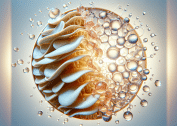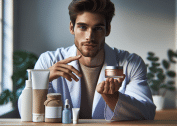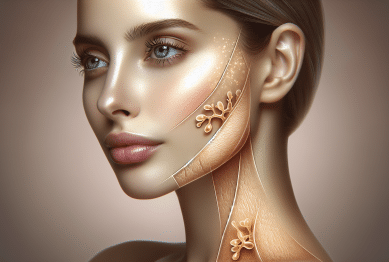Discover practical self-care strategies that support radiant skin and mental clarity. Explore how daily routines, evidence-backed wellness habits, nutrition, mindfulness, and accessible treatments help foster beauty and inner balance—no matter your schedule or lifestyle.
Why Self-Care Rituals Matter in Modern Beauty
Self-care rituals have become foundational in many people’s wellness journeys. With increasing awareness around holistic health, practices like mindful skincare and intentional relaxation are gaining traction. When routines are thoughtfully chosen, they offer both immediate comfort and long-term improvements in appearance and mood. Research suggests that carving out even a few quiet moments daily can influence stress and, in turn, the health of your skin (https://www.psychologytoday.com/us/basics/self-care). Adopting simple rituals—such as gentle cleansing, facial massage, or aromatherapy—creates a sense of structure and calm that carries throughout the day.
It’s no secret that external and internal wellness are closely intertwined. The skin, the body’s largest organ, reflects what happens inside the mind and vice versa. For instance, chronic tension or lack of sleep can present as dullness or irritation on your face. Evidence indicates that self-care doesn’t need to be elaborate to be effective. Even mindful breathing or short gratitude journaling sessions can support resilience. By anchoring daily routines with intention, people may notice visible and emotional benefits over time. The key is choosing consistent, enjoyable practices that fit seamlessly into regular life.
Transformation doesn’t require an overhaul. Consistency is the foundation. A small set of rituals—hydrating upon waking, gentle stretching, and a nurturing skincare step at night—can shape the way you feel and look. As studies underscore, personal care acts can interrupt cycles of stress, which often contribute to skin breakouts or premature aging (https://www.cdc.gov/mentalhealth/stress-coping/cope-with-stress/index.html). Even the most basic wellness habits have the potential to improve confidence and encourage healthier choices throughout the day.
Building an Effective Skincare Routine for Radiant Skin
Radiant skin is not just a result of pricey products—it starts with a thoughtful routine. Dermatologists recommend cleansing, moisturizing, and sun protection as non-negotiable steps for all skin types. Simple habits, when performed daily, help strengthen the skin barrier, prevent moisture loss, and shield against environmental damage (https://www.aad.org/public/everyday-care/skin-care-basics). Observing these fundamentals creates a foundation upon which optional add-ons, like antioxidant serums or gentle exfoliation, can enhance results.
Since skin is dynamic and influenced by seasons, hormones, and stress, flexibility and attentiveness matter. Ingredients such as hyaluronic acid boost hydration, while niacinamide can soothe redness or sensitivity. Choosing formulas tailored to your unique needs and patch-testing new additions avoids irritation. Many people benefit from streamlining their routines, focusing on quality and consistency rather than complex layering. Studies consistently highlight that even minimal but diligent routines support barrier repair and luminosity over time—especially when paired with a healthy lifestyle (https://www.ncbi.nlm.nih.gov/pmc/articles/PMC5843351/).
Not everyone has the same budget or skin goals, but everyone can practice mindful skincare. A brief facial massage, using upward strokes or tapping motions, can boost circulation and product absorption. Soft, cotton-based cloths reduce friction, and lukewarm—not hot—water prevents stripping natural oils. Nighttime is ideal for applying richer creams, enabling deeper repair as you rest. By making these steps routine, you can build habits that result in sustained radiance—and discover joy in even the most ordinary rituals.
The Power of Mindfulness in Enhancing Beauty
Mindfulness, a form of present-moment awareness, is a valuable addition to any beauty ritual. Taking time to notice each sensation during skincare can increase relaxation and promote a sense of gratitude for the body. Research suggests that mindfulness-based practices reduce cortisol, a stress hormone that may trigger acne and inflammation (https://www.health.harvard.edu/mind-and-mood/mindfulness-meditation-improves-mood-and-stress). A simple body scan or guided meditation post-shower can help you transition calmly into the day or unwind at night.
Incorporating mindfulness does not require large blocks of time or expensive equipment. Mindful breathing as you apply moisturizer or focusing on your senses during a morning walk amplifies positive results. These moments train the brain to slow down, which can prevent impulsive reactions to stress and reduce unhealthy habits, such as picking at the skin. Over weeks, the repeated pairing of mindful attention with self-care builds resilience, making you less reactive to irritants—both environmental and emotional.
Beyond beauty, consistent mindfulness supports overall wellness. Participants in regular mindfulness sessions report improved sleep quality, which is critical for cellular repair and youthful appearance (https://www.nccih.nih.gov/health/mind-and-body-practices). Some experts note that integrating mindfulness with traditional rituals can make them more meaningful and enjoyable. By truly inhabiting the moment, self-care becomes more than maintenance—it becomes nourishment for body and spirit.
Nutrition’s Surprising Role in Skin and Mood
The diet you choose directly impacts the health of your skin and emotional well-being. Fruits, vegetables, lean proteins, nuts, and omega-rich foods contain vital nutrients for both beauty and brain function. Clinical evidence links diets rich in antioxidants—like vitamin C from berries and greens—to reduced inflammation and enhanced skin recovery (https://www.hsph.harvard.edu/nutritionsource/healthy-eating-plate/). A balanced intake of complex carbohydrates and healthy fats stabilizes your energy and supports a glowing complexion.
Hydration deserves special attention. Water helps flush out toxins, keeps tissues plump, and aids every bodily process. Aim for regular sips throughout your day rather than large intakes all at once. Herbal teas and mineral water offer enjoyable, functional alternatives. While no food can guarantee flawless skin, those who focus on whole-food choices often report clearer, more supple skin and improved mood stability.
Supplements and superfoods are sometimes discussed in wellness circles. Before adding anything new, consult with a healthcare provider, especially if you have allergies or are on medication. Remember, consistent healthy eating will do more for skin health than any quick fix. The synergy between balanced nutrition, hydration, and restful sleep creates lasting vibrance and makes other beauty rituals more effective.
Accessible Wellness Rituals Anyone Can Try
Many impactful wellness habits require no special tools or investment. For example, dry brushing before bathing can gently exfoliate the skin and stimulate lymph flow, supporting detoxification and softness. Other widely practiced rituals include alternating between warm and cool water during showering, which is said to boost circulation. Each of these habits can seamlessly fit into even the busiest lifestyles and offer quick moments of relaxation.
Another easy-to-integrate practice is mindful stretching or light movement, such as yoga. Gentle stretches loosen tight muscles and, when coordinated with deep breathing, provide an energy boost. Body movement directly affects mental energy, which often correlates with self-perceived attractiveness and overall mood (https://www.cdc.gov/physicalactivity/basics/pa-health/index.htm). Prioritizing a few minutes of movement daily is shown to support hormone regulation and clearer skin.
Even rituals as simple as disconnecting from screens for a set period or enjoying a quiet cup of herbal tea can offer meaningful peace. Creating a sanctuary at home—a tidy corner with soft lighting, a favorite read, or relaxing music—can nurture the senses and provide a much-needed reset. By making space for these moments, you foster a cycle of positivity that reflects in both your appearance and your ability to meet life’s challenges with clarity.
The Science Behind Professional Skin Treatments
For those interested in advanced results, professional skin treatments can complement daily routines. Popular options include chemical peels, LED therapy, and microdermabrasion, many of which are supported by clinical research (https://www.aad.org/public/cosmetic-treatment). While these services offer benefits such as improved skin tone and texture, experts caution that choosing licensed, reputable providers and aligning treatments with your unique skin needs is essential for best outcomes and safety.
In-office procedures may achieve visible changes more quickly than home rituals, but results are optimized when paired with diligent at-home care. Professional treatments often stimulate collagen production—the protein responsible for firmness and elasticity. Yet, these interventions must be balanced with lifestyle factors like sleep and nutrition for lasting benefits. Any regimen, whether home-based or clinical, works best with realistic expectations and informed choices.
People with sensitive skin or specific conditions (like melasma or acne) should seek provider guidance before embarking on new treatments. Many dermatologists tailor approaches to individual needs, offering custom combinations that address several concerns at once. Ongoing care, maintenance appointments, and sun protection remain vital. By understanding both the promise and the limitations of these options, you can make empowered decisions about your wellness journey.
References
1. American Academy of Dermatology Association. (n.d.). Skin care basics. Retrieved from https://www.aad.org/public/everyday-care/skin-care-basics
2. Harvard T.H. Chan School of Public Health. (n.d.). The Nutrition Source: Healthy Eating Plate. Retrieved from https://www.hsph.harvard.edu/nutritionsource/healthy-eating-plate/
3. Harvard Medical School. (n.d.). Mindfulness meditation improves mood and stress. Retrieved from https://www.health.harvard.edu/mind-and-mood/mindfulness-meditation-improves-mood-and-stress
4. The Centers for Disease Control and Prevention. (n.d.). Coping with stress. Retrieved from https://www.cdc.gov/mentalhealth/stress-coping/cope-with-stress/index.html
5. American Academy of Dermatology Association. (n.d.). Cosmetic treatments. Retrieved from https://www.aad.org/public/cosmetic-treatment
6. National Center for Complementary and Integrative Health. (n.d.). Mind and body practices. Retrieved from https://www.nccih.nih.gov/health/mind-and-body-practices









